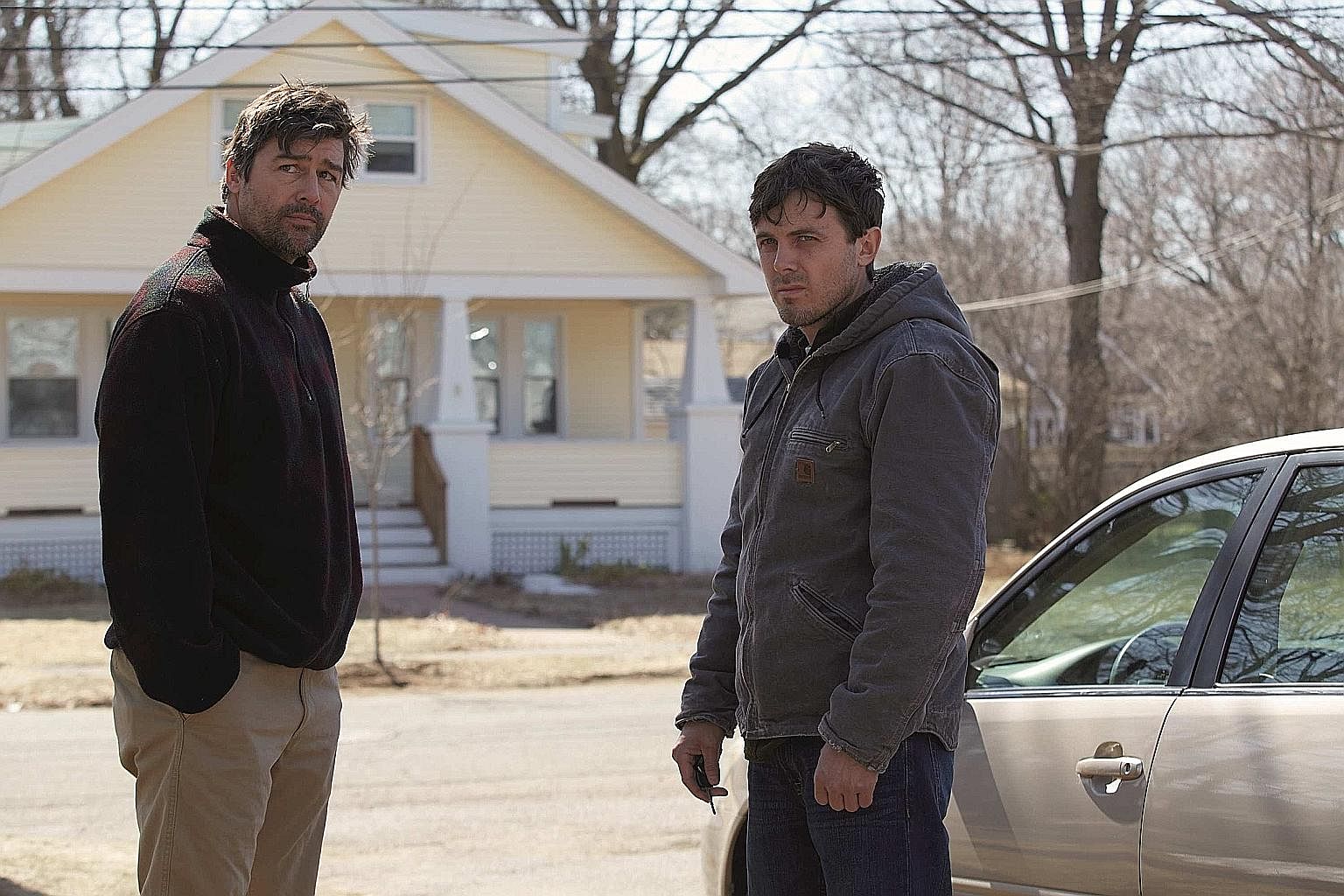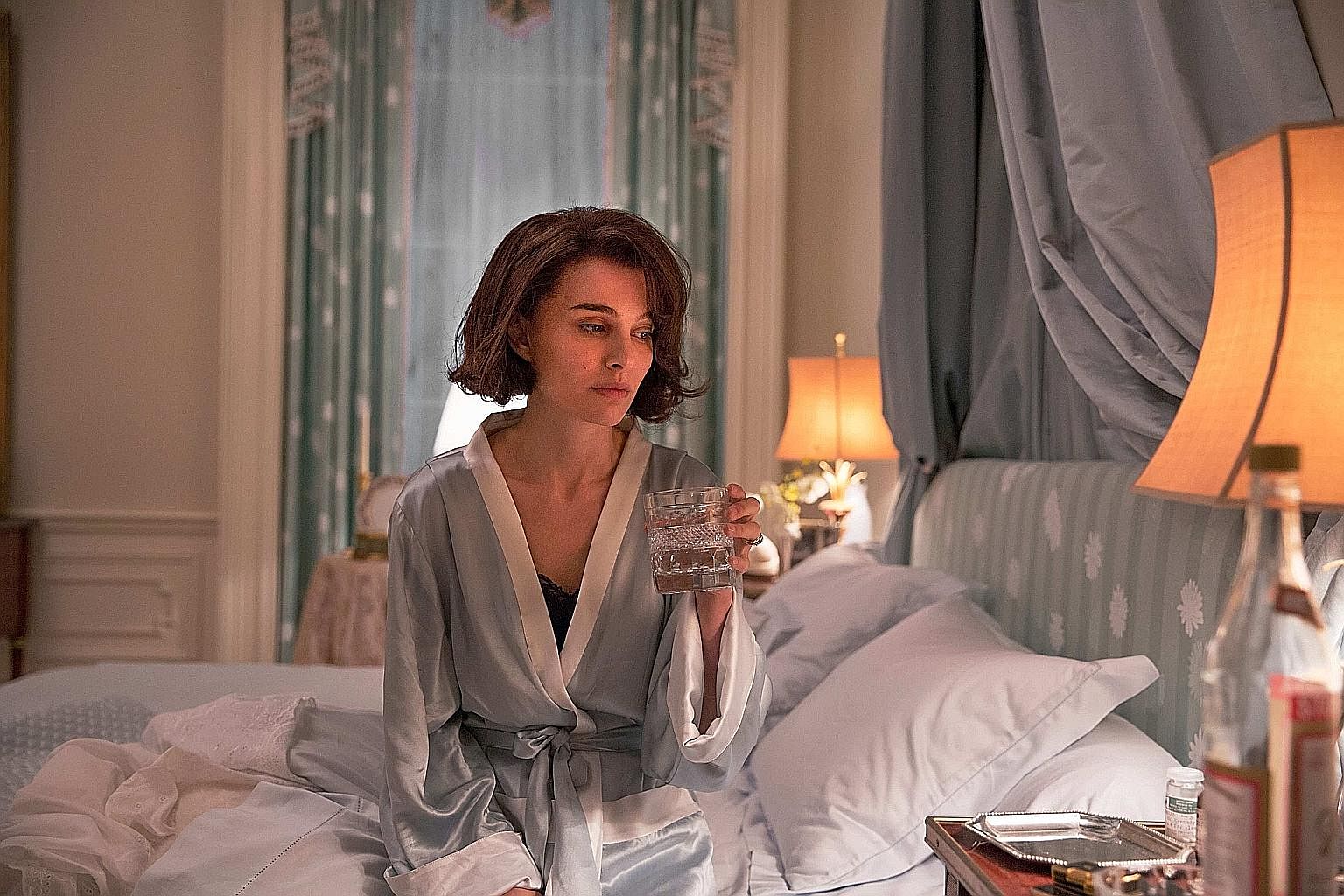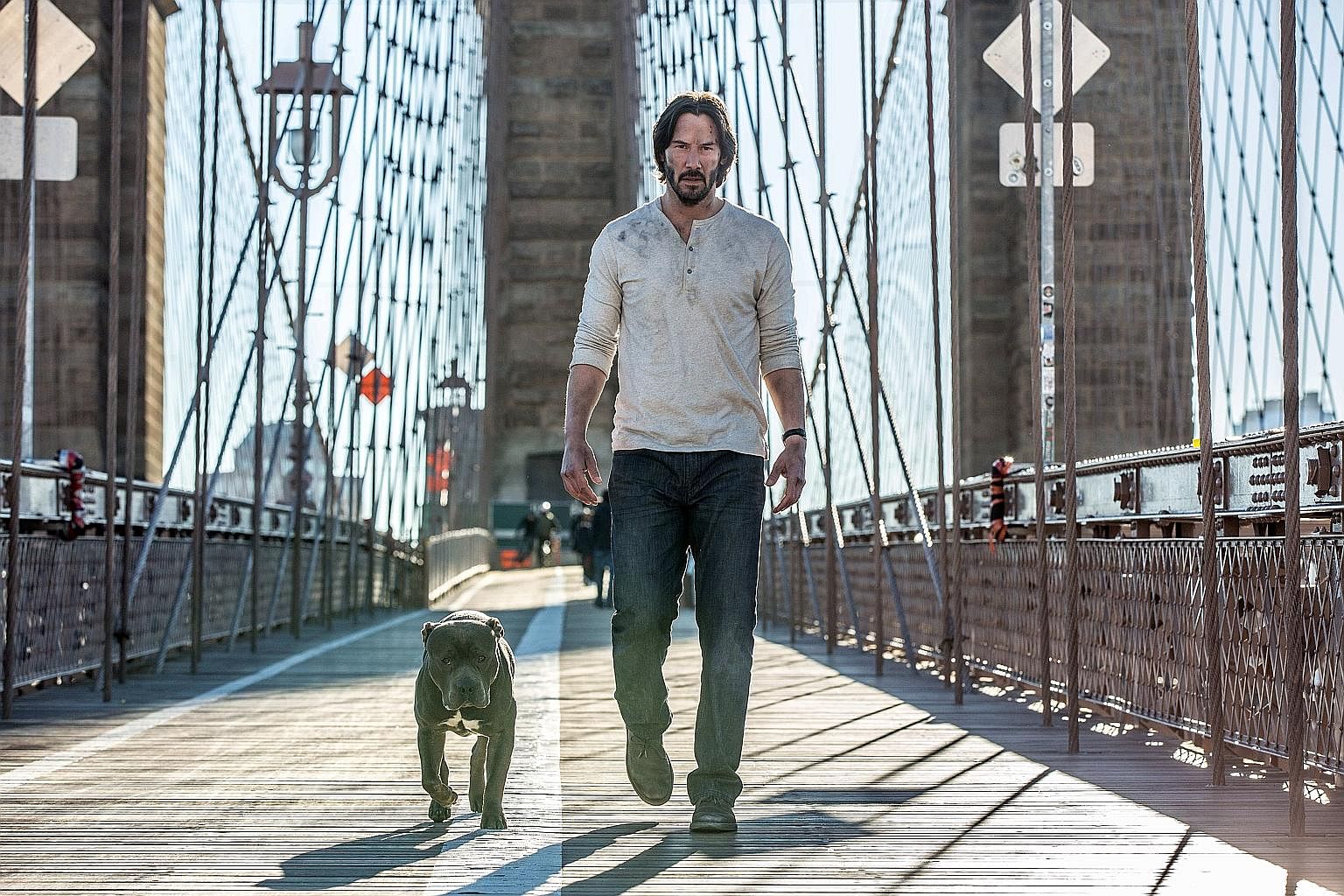Welcome to the awards season, when it seems every film arrives garlanded with wins or nominations. February also happens to be the time when interesting oddballs with zero awards lustre pop up - these are films that were supposed to have broad appeal, but turned out too weird for release during the mid- year high season.
Manchester By The Sea(NC16, 138 minutes, opens tomorrow, 4/5 stars) is that staple of American indie cinema: the lo-fi, mumbly- dialogue, working-class, distinctly regional family story of rupture and healing. While far from perfect, it happens to be a very well-crafted example of the genre.
Theatre maven and auteur Kenneth Lonergan deserves the credit he gets for this work, which includes an Oscar nod for Best Picture and a lock on the Best Actor Oscar for Casey Affleck.
Told in a series of vignettes that flit back and forth in time, the story opens with Lee (Affleck), a small- city Massachusetts handyman committing suicide slowly with booze and bar fights. The reason for his death wish comes to light slowly, but not before he is thrown for a loop when he becomes an unwilling guardian to his nephew, Patrick (Lucas Hedges).

Writer-director Lonergan's tight editing keeps the story moving forward while his ear for naturalistic dialogue lends authenticity. He writes with sardonic humour too, such as in the wince-inducing scene where the taciturn Lee is forced to make small talk with the mother of Patrick's girlfriend.
The praises for Affleck's performance are deserved. His character is opaque and unlikable, but the actor convinces the viewer that he has earned his inner pain and, thus, the right to be a brute.
The biopic Jackie(NC16, 100 minutes, opens tomorrow, 3/5 stars) is, like Manchester, a movie made for actors. Natalie Portman is in the race for the Best Actress Oscar for playing Jackie Kennedy, wife of American president John F. Kennedy.

Following the assassination of the president, a nameless journalist (Billy Crudup) interviews the widow and, through this device, the emotional topography of the former first lady's soul is revealed.
Chilean director Pablo Larrain and screenwriter Noah Oppenheim set out to do several things, among them, to fix her public image. She was, and still is, seen mostly as a trendsetter in fashion and interior decor, but the film puts a focus on her fierce intellect and a passion for the arts.
Portman, with her fabulous upper-crust accent, is the best thing in this piece, essentially a longish radio play. Larrain and Oppenheim do what they can with the visuals, but the flashback interludes have the unfortunate air of cheesy History Channel re-enactments.
Hidden Figures(PG, 127 minutes, opens next week, 3.5/5 stars) is another true-story portrait in the Oscar race. It is up for Best Picture, Best Adapted Screenplay and Best Supporting Actress, for Octavia Spencer.
The movie, which documents the role of African-American women in the early days of the National Aeronautics and Space Administration (Nasa), is a commercial hit in the United States. This is an unabashedly joyful account of the triumph of all- American values over racism and sexism, told with humour and patriotic fervour.
Spencer, Taraji P. Henson and Janelle Monae are Nasa "computers", which in its original sense referred to human number- crunchers. Director and co-writer Theodore Melfi uses girl-group shorthand to give them identities. There is the brainy one (Henson's Katherine Johnson), the fiery one (Monae's Mary Jackson) and the down-to-earth one (Spencer's Dorothy Vaughan).
With co-writer Allison Schroeder, Melfi has plenty to say about what it was like to be black and a woman in the 1960s. Race and gender politics enter as small, personal insults - a segregated coffee pot, a condescending smirk, a closed meeting-room door - but every setback is tied up neatly with a victory. That forced feel-good element is the weakest point in an otherwise fine story.
Director Gore Verbinski ascended to Hollywood's top tier on the back of the first three Pirates Of The Caribbean movies (2003-2007). The goodwill he earned from the highly profitable Pirates films - and his friendship with Johnny Depp - bankrolled expensive forays into the outer limits. The Depp-voiced animated feature Rango (2011) was a critical and commercial hit; the Depp-led surrealist western The Lone Ranger (2013) was neither - it was a disaster.
Verbinksi's psychological horror piece, A Cure For Wellness(M18, 147 minutes, opens tomorrow, 3/5 stars), is Depp-free, but it does have on board Lone Ranger writer Justin Haythe, whose participation might explain its Lone Ranger-like self-indulgent, rambling second act.
Hotshot executive Lockhart (Dane DeHaan) is sent to a wellness centre in the Swiss Alps to retrieve a recuperating board member, but after arrival, he is swallowed by a nightmare that forces him to doubt his sanity.
Verbinski tosses everything into the pot - hallucinations, gas- lighting, mad doctors drilling teeth as a form of torture, slimy phallic symbols slithering in black ponds, Germans who glower at you while speaking gutturally, or are they just Germans being German?
This mad cribbing of David Cronenberg, Guillermo del Toro and Dario Argento might have been a mess, if not for Verbinski's sly humour - there's a winking knowingness that dares the viewer to take it all seriously. That campiness saves the film.

In the first John Wick movie, they shot his dog and took his car. That movie's high kill count settled the score for the dog and now, John Wick: Chapter 2 (M18, 122 minutes, opens tomorrow, 3/5 stars) addresses the issue of the missing Mustang. In a development that echoes the first film, super-assassin Wick (Keanu Reeves) defends himself against a mob boss who throws his personal army at him.
The 2014 movie's use of realistic violence in a video-game-inspired world made it a global smash. Returning director Chad Stahelski sticks to the formula, while upping the kills to compensate for the lack of conceptual freshness. The run-shoot-kick-stab schtick gets numbing, but it is impossible to fault Stahelski's attention to detail - which was the last action movie you saw in which shooters had to reload their weapons?
The Space Between Us(PG, 120 minutes, opens tomorrow, 2/5 stars) is The Martian (2015) reimagined as a teen romance. Gardner (Asa Butterfield) is an adolescent who, through a series of accidents and cover-ups, has grown up a resident of a Mars colony in the company of scientists.
On the Internet, the socially awkward lad chats with Tulsa (Britt Robertson), an Earth girl with a host of emotional issues, who has no idea he lives on another planet.
When fate brings them together, the movie falters and never quite recovers. The contrived set-up is squandered on an equally contrived, clumsily handled love story with little of the science- fiction tone implied in the first act. Robertson and Butterfield deserve better than this.

